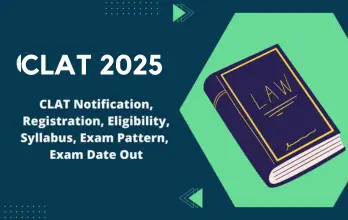
IBPS exams are highly competitive and play a crucial role in determining one's career in the banking sector. Among the various sections in these exams, quantitative aptitude or data interpretation holds immense importance. Mastering this section is vital for excelling in IBPS exams, as it carries significant weightage in both the prelims and mains. A strong command over quantitative aptitude not only boosts your overall score but also enhances your problem-solving abilities and analytical thinking, which are essential skills for a successful banking career.
However, this section poses a challenge for many students, as it demands good speed with strong calculation and Aptitude Skills for IBPS Exams. The presence of a sectional time limit adds a hurdle, making it essential for candidates to effectively manage their time while attempting the entire quant section.
In this article, we will explore the strategies and techniques required to Improve Quantitative Aptitude Skills for IBPS exams, equipping you with the tools to boost your overall performance in this critical section.
Building a Strong Foundation for IBPS Exams
Quantitative Aptitude forms a crucial section of the IBPS exams & building a solid foundation in this section is extremely important in achieving your goals in the field of banking. A solid foundation enables you to understand and interpret numerical data accurately, perform calculations swiftly, equip you with techniques required to tackle a wide range of quantitative problems efficiently, and minimizes the possibility of errors during the exam.
Let us understand the weightage of the Quantitative Aptitude section in different IBPS Exams.
Quantitative Aptitude forms a crucial section of the IBPS exams & building a solid foundation in this section is extremely important in achieving your goals in the field of banking. A solid foundation enables you to understand and interpret numerical data accurately, perform calculations swiftly, equip you with techniques required to tackle a wide range of quantitative problems efficiently, and minimizes the possibility of errors during the exam.
Let us understand the weightage of the Quantitative Aptitude section in different IBPS Exams
| Exam | Prelims (Out of 100) | Mains (Out of 200) |
| SBI PO | 35 | 50 |
| IBPS PO | 35 | 60 |
| SBI CLERK | 35 | 50 |
| IBPS CLERK | 35 | 50 |
| RRB PO | 40 (out of 80) | 50 |
| RRB CLERK | 40 (out of 80) | 50 |
| RBI ASSISTANT | 35 | 40 |
To build a strong foundation in this section & to Improve Quantitative Aptitude Skills, you need to master the basic concepts of mathematics and to achieve that, it is essential to follow a systematic approach.
1. Begin by revising the fundamental formulas and concepts in each topic, such as arithmetic, algebra, geometry, and data interpretation. Make sure you understand the underlying principles and their applications.
2. As you review, take concise and organized notes, highlighting the key points and any tricks or shortcuts that can be useful during problem-solving. Create a formula sheet and review it frequently to reinforce your knowledge.
3. Practice regularly, review your mistakes, and seek clarification whenever needed. Solving a wide range of questions helps you become familiar with different problem types, improves your problem-solving skills, and builds confidence.
With a systematic approach and consistent effort, you can master the mathematical concepts required for the quant section of IBPS exams & easily improve your Quantitative Aptitude Skills.
Mastering Mathematical Concepts
Quantitative aptitude is a high-scoring section if prepared well. A strong foundation in mathematical concepts will enable you to solve problems accurately and efficiently, leading to higher scores in IBPS Exams.
Start with Easy Topics:
Beginning with easier topics in the quant section, such as percentages, profit and loss, averages, ratios and proportions, and simplification, is a smart approach. These topics often form the foundation for more complex concepts and are frequently used in solving moderate and difficult problems.
By mastering the easier topics first, you establish a strong understanding of basic mathematical principles and gain confidence in solving problems. As you progress to more moderate topics like data interpretation, quadratic equations, data sufficiency, and problems on ages, you will find that they often involve the application of the earlier learned concepts.
Attempt Topic Tests:
Topic Test is a learning technique meticulously designed by Smartkeeda to acquaint the students with all the important topics asked in the IBPS examinations. These tests are particularly created to examine and strengthen the basic concepts of students in different topics in each section from basic to advanced level or IBPS Clerk pre-level to IBPS PO mains level.
The initial tests in the topic test series are of elementary level targeting the prelims, gradually the difficulty level is increased to the mains level. Here, you can attempt quizzes on different topics such as Data Interpretation, Mixture and Allegation, Compound interest, Probability, Time and Distance, Boats, and Stream and master these topics from scratch. Practicing each topic through these quizzes will improve your understanding of the concepts and problem-solving skills.
Review & Reattempt:
Simply attempting mock tests or solving questions is not enough. It is equally important to review your mistakes. When you make an error, take the time to understand why it happened. Was it a conceptual misunderstanding? Did you misapply a formula or make a calculation error? By analyzing your mistakes, you can identify the specific areas where you need improvement.
After completing the tests, analyze the solutions provided & look for more efficient methods. Take note of the strategies employed, such as shortcuts, or problem-solving techniques. After learning new approaches to those problems, reattempt the test and see improvement in your performance curve.
Approaching the quant section in a structured manner helps prevent frustration and allows for a smoother learning curve.
Enhancing Quantitative Aptitude Skills in IBPS Exams
The ability to solve questions within a limited time frame is crucial. The Quantitative Aptitude section typically includes a wide range of numerical problems that require quick thinking and efficient calculations. By enhancing quantitative aptitude skills, you can solve these questions accurately and swiftly, maximizing your score in this section.Here are some tips to Improve Quantitative Aptitude Skills in IBPS Exams:
• Reduce the use of pen and paper: By doing so, you can significantly speed up your problem-solving abilities. Start by attempting simple calculations mentally and gradually increase the complexity. This technique not only saves time during exams but also strengthens your numerical ability.
• Work on your mental calculation skills: Develop mental strategies for performing calculations & practice techniques like approximation, estimation, and breaking down complex calculations into simpler steps. Regular mental calculation exercises will enhance your speed and accuracy.
• Learn the Cubes and Squares by heart: Memorizing cubes up to 20 and squares of numbers up to 30 can be immensely helpful. Knowing them by heart saves time and eliminates the need for repetitive calculations.
• Utilize Mobile apps: Mobile apps offer a range of features such as Quant sectional tests, topic tests, offline PDF tests, and detailed solutions to help candidates enhance their proficiency. By regularly practicing with these tests and reviewing the solutions, you can identify your strengths and weaknesses in different topics & work on them.
• Practice, Practice, and Practice: Consistent practice is the key to success in the Quantitative Aptitude section. Solve a variety of questions from different topics and difficulty levels to build speed, accuracy, and confidence.
Improving Proficiency in IBPS Quantitative Aptitude Questions
Efficiently solving IBPS Quantitative Aptitude questions requires consistent practice. After strengthening the fundamental concepts, you can further enhance your Quantitative Aptitude skills through targeted practice tests. Smartkeeda offers the following Quantitative Aptitude Sectional Tests to help you improve your proficiency in the Quant Section:
Efficiently solving IBPS Quantitative Aptitude questions requires consistent practice. After strengthening the fundamental concepts, you can further enhance your Quantitative Aptitude skills through targeted practice tests. Smartkeeda offers the following Quantitative Aptitude Sectional Tests to help you improve your proficiency in the Quant Section:
• IBPS Clerk Pre Quant Sectional Test
• IBPS Clerk Mains Quant Sectional Test
• IBPS PO Pre Quant Sectional Test
• IBPS PO Mains Quant Sectional Test
These sectional tests are designed by subject matter experts who possess in-depth knowledge of the IBPS exams and their evolving question patterns. Here, in addition to providing trending questions for bank exams, we offer a wide range of expected questions that cover various difficulty levels. By practicing these expected questions, you develop a versatile problem-solving approach and become familiar with different question formats.
By attempting the Quant sectional tests at Smartkeeda, you can significantly improve your preparation level and boost your confidence in tackling IBPS Quantitative Aptitude questions.
Recommended Resources for IBPS Exams
Sticking to the right sources is crucial to staying on track during your preparation for IBPS exams. To assist you in this aspect, we are sharing some valuable resources that can greatly aid your study plan.Recommended Quantitative Aptitude books for IBPS Exams:
• Quantitative Aptitude for Competitive Examinations by R.S Aggarwal
• Data Interpretation by Arun Sharma
• Arihant’s Fast Track Objective Arithmetic
• Bank PO Quantitative Aptitude Chapter Wise Solved Papers by Kiran Prakashan
Topic Wise Quant Quizzes for IBPS Exams

Author : Anjali
Hi, I am Anjali, a Probationary officer at a leading Public Sector Bank. With a passion for helping aspiring bankers, I have embarked on a journey to share my knowledge and insights through informative blogs. Having successfully cleared various bank exams myself, including IBPS PO XII, I understand the challenges and the importance of effective preparation. Through my blogs, I aim to provide valuable tips, strategies, and resources specifically tailored for bank exams, empowering the aspirants to achieve their dream of a successful banking career.
FAQ’s
Quantitative aptitude is important for IBPS exams because it is a highly scoring section, carrying a weightage of 35 in pre and around 50-60 marks in mains. Excelling in this section can significantly boost your overall score and increase your chances of securing a prestigious position in the banking sector.
To improve your quantitative aptitude skills, focus on strengthening your basic concepts and formulas. Regularly attempt quantitative aptitude quizzes available at Smartkeeda, which provide targeted practice and help you identify areas for improvement. Consistent practice and revision of concepts will gradually enhance your quantitative aptitude skills.
Some recommended study materials for quantitative aptitude include "Quantitative Aptitude for Competitive Examinations" by R.S Aggarwal and "Data Interpretation" by Arun Sharma. Additionally, attempting quant quizzes, topic tests, and sectional tests at Smartkeeda can greatly assist in improving time management skills.
To manage your time during the exam, utilize short tricks and techniques for quick calculations, learn important formulas, and memorize cubes and squares for faster calculations. Additionally, prepare in advance by attempting mock tests to understand the question patterns and practice efficient problem-solving methods. This approach will help you optimize your time and improve your overall performance in the exam.
To improve speed and accuracy in solving quantitative aptitude questions, consistent practice is key. Attempt mock tests, review your mistakes, learn from them, and reattempt those questions to reinforce your understanding.





